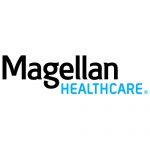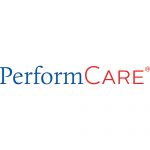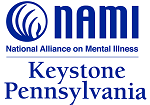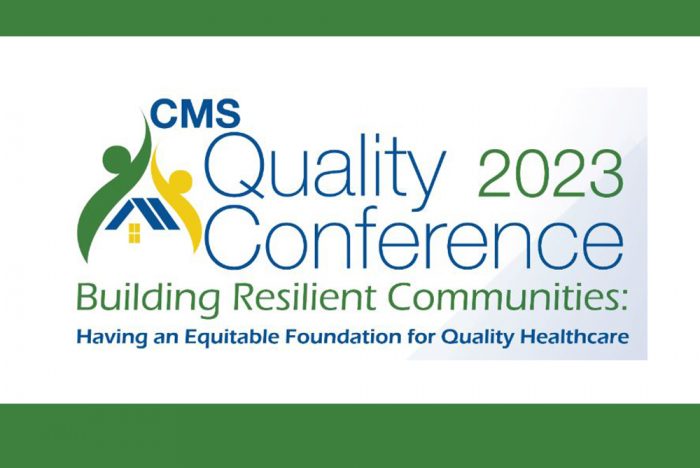CMS Review Choice Demonstration Rollout to Begin in August
The Centers for Medicare and Medicaid Services (CMS) recently notified the American Medical Rehabilitation Providers Association (AMRPA) that the rollout of the Review Choice Demonstration (RCD) would begin on August 21, 2023, in Alabama. In previous information released about the RCD, Pennsylvania is most likely to be one of the next states in line for this rollout. Under this demonstration, CMS Medicare Administrative Contractors (MACs) will review all Medicare Fee-for-Service (FFS) claims in select states. CMS will utilize a dedicated website to provide updated information and resources to inpatient rehabilitation facility (IRF) stakeholders.
RCPA is working closely with AMRPA staff and will keep members apprised of developments and updates throughout the demonstration. The RCD website confirms that affected IRFs will have the option to elect pre-claim or post-payment review (and must use the same option for all claims).
RCPA Golf Outing Raises Funds for PAC — Thank You to All Participants!

RCPA held a golf fundraiser for the RCPA Political Action Committee (RCPA PAC) on Wednesday, May 10, 2023. This successful event raised much-needed funds for our legislative activities, and we would like to thank all the generous golfers who participated and contributed. Congratulations to our winners! In addition, we would like to thank our sponsors:
- Associated Production Services, Inc.;
- Brier Dlugolecki Strategies;
- Ceisler Media & Issue Advocacy;
- Christopher S. Lucas & Associates;
- Corporate Benefits Consultants;
- Erie County Care Management;
- Morgan Stanley Wealth Management;
- Novak Strategic Advisors; and
- Threshold Rehabilitation Services, Inc.
Your support is always appreciated, and we encourage you to make a personal contribution to the RCPA PAC. For your convenience, you can now make an online contribution.
Thank you again for your participation and support. We look forward to holding another golf outing in October, in conjunction with the RCPA Annual Conference.
Your participation in the RCPA-PAC is completely voluntary, and you may contribute as much or as little as you choose. Donations are not tax-deductible and will be used for political purposes. You may choose not to participate without fear of reprisal. You will not be favored or disadvantaged by reason of the amount of your contribution or decision not to contribute.
Federal HIPAA Telehealth Flexibilities to End Aug 9; Return to HIPAA Compliance
As the Federal Public Health Emergency (PHE) ends on May 11, there are several areas under this declaration, including the suspension of HIPAA enforcement, that will revert to the previous compliance standards.
As the PHE ends, the Office of Civil Rights (OCR) is providing a 90-calendar day transition period for covered health care providers to come into compliance with the HIPAA Rules with respect to their provision of telehealth. This transition period will be in effect beginning on May 12, 2023, and will expire at 11:59 pm on August 9, 2023. The Department of Health and Human Services has released this notice.
The RCPA Telehealth Work Group will be meeting June 27, 2023 and is looking to have OMHSAS on the call to provide guidance on processes and auditing functions after the transition dates. If you have any questions, please contact RCPA Policy Director Jim Sharp. As this is a federal notice, questions related to this announcement should be directed to Marissa Gordon-Nguyen at 202-619–0403 or 800-537–7697 (TDD).
CMS Releases End of PHE Guidance and FAQs
As the end of the Public Health Emergency (PHE) on May 11, 2023 nears, the Centers for Medicare and Medicaid Services (CMS) has released a number of resources to help with this transition. Included in these resources are FAQs for all CMS programs, including Medicare, Medicaid, the Children’s Health Insurance Program (CHIP), and private insurance. Some additional information includes:
- What Do I Need to Know? CMS Waivers, Flexibilities, and the Transition Forward from the COVID-19 Public Health Emergency fact sheet
- CMS Current Emergencies web page
Additionally, CMS released the Quality, Safety, & Oversight Memorandum to provide information about:
- Expiration of emergency waivers related to minimum health and safety requirements for long-term care and acute and continuing care providers
- Timelines for certain regulatory requirements issued during the PHE
Congressional Hearing on Pandemic Preparedness Planned for May 4
The Senate Health, Education, Labor & Pensions (HELP) Committee will hold a full committee hearing on May 4, 2023 at 1:00 pm. This hearing, “Preparing for the Next Public Health Emergency: Reauthorizing the Pandemic and All-Hazards Preparedness Act (PAHPA),” will address the PAHPA set to expire on September 30, 2023. This would be PAHPA’s first reauthorization since the COVID-19 pandemic, and there are significant lessons learned and issues to address from this experience. The Centers for Disease Control & Prevention (CDC) Director Dr. Rochelle Walensky, Food & Drug Administration (FDA) Commissioner Robert Califf, and Assistant Secretary for Preparedness and Response at the Department of Health and Human Services (HHS) Dawn O’Connell are a few individuals expected to testify at the hearing.
Don’t Miss Your Chance to Sponsor and Exhibit at the 2023 RCPA Conference!
Join RCPA as we host the 2023 Annual Conference, A Decade of Unity: Enhancing Lives and Shaping the Future, October 10–13. RCPA staff and the Conference Committee are excited to return to the Hershey Lodge, as we have new opportunities for sponsors and exhibitors to showcase their services! Be sure to complete the Sponsors, Exhibitors, and Advertisers brochure to reserve your spot, as space and opportunities are reserved on a first-come, first-served basis.
We already have a growing number of sponsors and exhibitors and wish to recognize the following organizations for their contributions and support for what is shaping up to be a packed week of sessions and events!
Platinum
Silver Bronze
Bronze
 Supporting
Supporting
Patron Exhibitors
Exhibitors
 |
 |
||
As a reminder, sponsors, exhibitors, and advertisers who wish to be listed on the website, the mobile app, and in the conference program must submit all materials by September 8. In order to be considered for booth self-selection, a completed contract with payment must be submitted, and no reservation is considered complete without payment. If questions remain, please contact Carol Ferenz, Conference Coordinator.
CMS Proposes New Standards to Help Ensure Access to Quality Healthcare in Medicaid & CHIP
The Centers for Medicare and Medicaid Services (CMS) released two notices of proposed rulemaking (NPRM): Ensuring Access to Medicaid Services and Managed Care Access, Finance, and Quality.
If adopted as proposed, the rules would establish national standards for access to care regardless of whether that care is provided through managed care plans or directly by states through fee-for-service (FFS). Specifically, they would establish access standards through Medicaid or CHIP managed care plans, as well as transparency for Medicaid payment rates to providers, including hourly rates and compensation for certain home care and other direct care workers. The rules would also establish other access standards for transparency and accountability and empower beneficiary choice.
The proposed rules together include new and updated proposed requirements for states and managed care plans that would establish tangible, consistent access standards and a consistent way to transparently review and assess Medicaid payment rates across states. The rule also proposes standards to allow enrollees to easily compare plans based on quality and access to providers through the state’s website.
Other highlights from the proposed rules include:
- Establishing national maximum standards for certain appointment wait times for Medicaid or CHIP managed care enrollees, and stronger state monitoring and reporting requirements related to access and network adequacy for Medicaid or CHIP managed care plans, which now cover the majority of Medicaid or CHIP beneficiaries;
- Requiring states to conduct independent secret shopper surveys of Medicaid or CHIP managed care plans to verify compliance with appointment wait time standards and to identify where provider directories are inaccurate;
- Creating new payment transparency requirements for states by requiring disclosure of provider payment rates in both fee-for-service and managed care, with the goal of greater insight into how Medicaid payment levels affect access to care;
- Establishing additional transparency and interested party engagement requirements for setting Medicaid payment rates for home and community-based services (HCBS), as well as a requirement that at least 80 percent of Medicaid payments for personal care, homemaker, and home health aide services be spent on compensation for direct care workers (as opposed to administrative overhead or profit);
- Creating timeliness-of-access measures for HCBS and strengthening necessary safeguards to ensure beneficiary health and welfare as well as promote health equity;
- Strengthening how states use state Medical Care Advisory Committees, through which stakeholders provide guidance to state Medicaid agencies about health and medical care services, to ensure all states are using these committees optimally to realize a more effective and efficient Medicaid program that is informed by the experiences of Medicaid beneficiaries, their caretakers, and other interested parties;
- Requiring states to conduct enrollee experience surveys in Medicaid managed care annually for each managed care plan to gather input directly from enrollees; and
- Establishing a framework for states to implement a Medicaid or CHIP quality rating system, a “one-stop-shop” for enrollees to compare Medicaid or CHIP managed care plans based on quality of care, access to providers, covered benefits and drugs, cost, and other plan performance indicators.
The proposed rules will be published in the May 5, 2023, Federal Register, and comments will be accepted through July 3, 2023.
CMS Announces 2023 Virtual Quality Conference
The Centers for Medicare and Medicaid Services (CMS) will be hosting the 2023 Virtual Quality Conference. The conference, Building Resilient Communities: Having an Equitable Foundation for Quality Healthcare, will be held on May 1–3, 2023 and will focus on improving quality, equity, and innovation.
Leaders in the health care space will explore and educate how advocates, providers, researchers, and champions in health care quality improvement can develop and spread solutions to address America’s most pervasive health system challenges. To view the agenda and additional information, as well as to register, use this link.
















